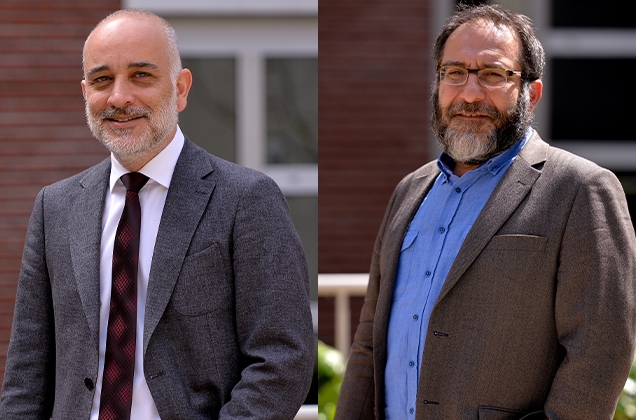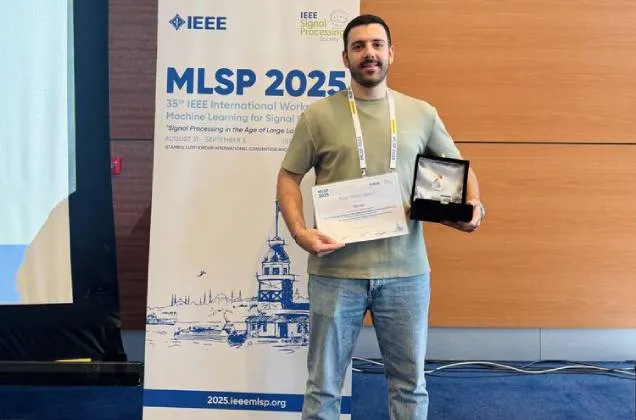19/04/2021
The projects of Sabancı University faculty members were found eligible for support under the Bilateral Cooperation Program of TÜBİTAK and the National Research Foundation of South Korea (NRF).

One of the projects is a study in which Cem Güneri, Deputy Rector in Charge of Education and a Faculty Member at the Faculty of Engineering and Natural Sciences (FENS), is a researcher, and another is a study in which Erhan Budak, a Faculty Member at FENS, is the coordinator.
Within the scope of the project titled "Research on Coding Theory and Applications", in which Cem Güneri is a researcher, coding as one of the basic mathematical concepts of communication will be studied. In addition to the codes whose intersection with their dual is maximal (co-dual) and minimal (integrative dual), the code types that are in between will be the main study topics. The project also aims to achieve results on the applications of such structures in areas such as quantum error correction codes, classical cryptography, and code-based cryptography.
The team of the two-year project includes Ferruh Özbudak from Middle East Technical University as the coordinator and Cem Güneri from Sabancı University as a researcher from Turkey and Jon-Lark Kim from Sogang University in South Korea as the coordinator, and Whan-Hyuk Choi from the same institution as a researcher.
The project titled “An Integrated Approach for The Best Design of High-speed Milling spindles” where Erhan Budak is the coordinator aims to develop the best design methods for high-speed spindles based on modeling, analysis, and experimental studies. Spindles rotating at high speeds are used in applications ranging from energy systems to medical devices, from aircraft engines to manufacturing machines. The aim of this project is to develop methods for the best design of spindles for high-speed machining centers commonly used in the manufacturing industry. Due to very high rotational speeds, dynamic performance and thermal deformations are critical factors for these systems. The dynamic rigidity is required in spindles for high-speed manufacturing, and thermal stability is required for high precision. In cases where sufficient dynamic rigidity is not provided, problems caused by vibrations reduce production quality, and also damage the spindle itself and the machine. Thermal deformations due to excessive heat caused by high-speed rotation lead to dimensional quality problems. Therefore, both thermal and dynamic aspects of high-speed spindles will be investigated in the project by analytical and numerical methods, considering the impacts of bearings, cooling system, rotor geometry, etc. These methods, which will be used in the optimal design of the spindle, will be experimentally verified. For this purpose, a high-speed spindle based on the best design will be produced and its advanced features will be shown in different aspects.
In addition to the academic output from the project, it is also aimed to build knowledge and infrastructure on the design, production, and use of high-speed spindles of strategic importance for sectors such as aerospace, energy, medical, etc. Emre Özlü will participate as a researcher in the project to be carried out in coordination with Prof. S. W. Hong and his team from Kumoh National Technology Institute. In addition, postgraduate and doctoral students will also work in the project in different work packages.




